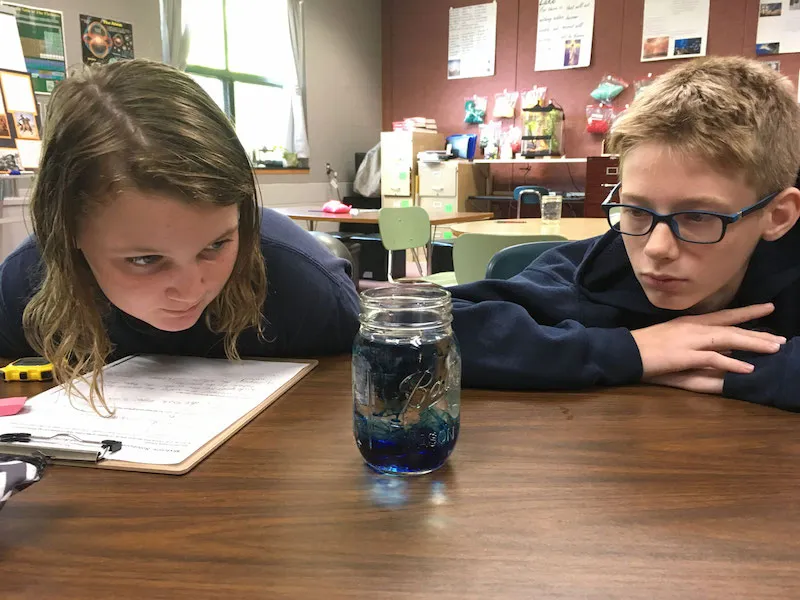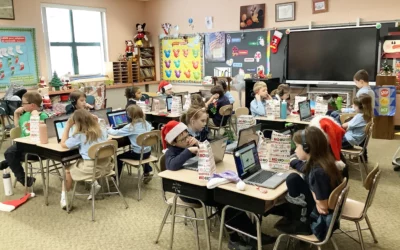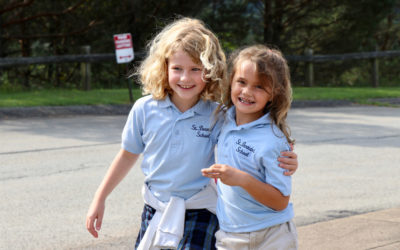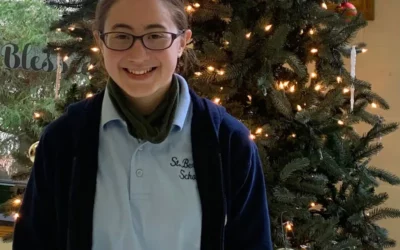INDIANA — The middle-school science program at St. Bernard Regional Catholic School has quickly become a success by incorporating faith, according to Denise Swope, principal.
She credits that to teacher, Katelyn Waterhouse, who has an educational background in special education and writing and is studying for a certificate in pastoral ministry. She is putting that varied background to work with an emphasis on science for the sixth-, seventh- and eighth-grade students.
The school added seventh and eighth grades in 2015, and Waterhouse joined the faculty as the middle school teacher in 2017.
Swope could not be happier with the results.
“Students have really embraced this,” she said of the science program.
Waterhouse, who lives in Blairsville, is a parishioner of Church of the Good Shepherd Parish, Kent. In addition to her bachelor’s degree in composite writing from the University of Pittsburgh-Johnstown, a master’s degree in special education and teaching certification from Indiana University of Pennsylvania, she is certified as an instructor in Catechesis of the Good Shepherd and is currently in the Certificate in Pastoral Ministry program at Seton Hill University, Greensburg.
She says incorporating religion into science instruction comes naturally. She teaches science to students in grades 6-8 and religion to students in grades 7-8.
“The more we learn about science, the more we can learn about God’s design,” Waterhouse said. “It is easier to understand God when physical science makes sense; students can understand the duality of their biology and soul.”
She said that teaching science to the same students for three years is beneficial.
“When you have the same students, you can help them recognize what they did last year,” she said.
She makes the science classroom comfortable with a variety of live plants and animals, including fish, a leopard gecko, and three anoles, which are small green lizards.
Waterhouse attends professional development programs to continue learning about STEAM (science, technology, engineering, arts and mathematics) education.
One workshop provided a grant from the Academy of Model Aeronautics for materials the Middle School Science Club used to build model balsa wood planes and create an in-school flight competition, Swope said.
Student learning is also enhanced by regional science competitions, including the Pennsylvania Junior Academy of Science competition for eighth-graders and the Covestro Pittsburgh Regional Science and Engineering Fair in March for students in grades 6-8.
The middle-school success led the school to form a science club for students in grades 3-5 this year.
“We have a great program and want to make sure people know that,” Swope said.
— Jerry Zufelt




